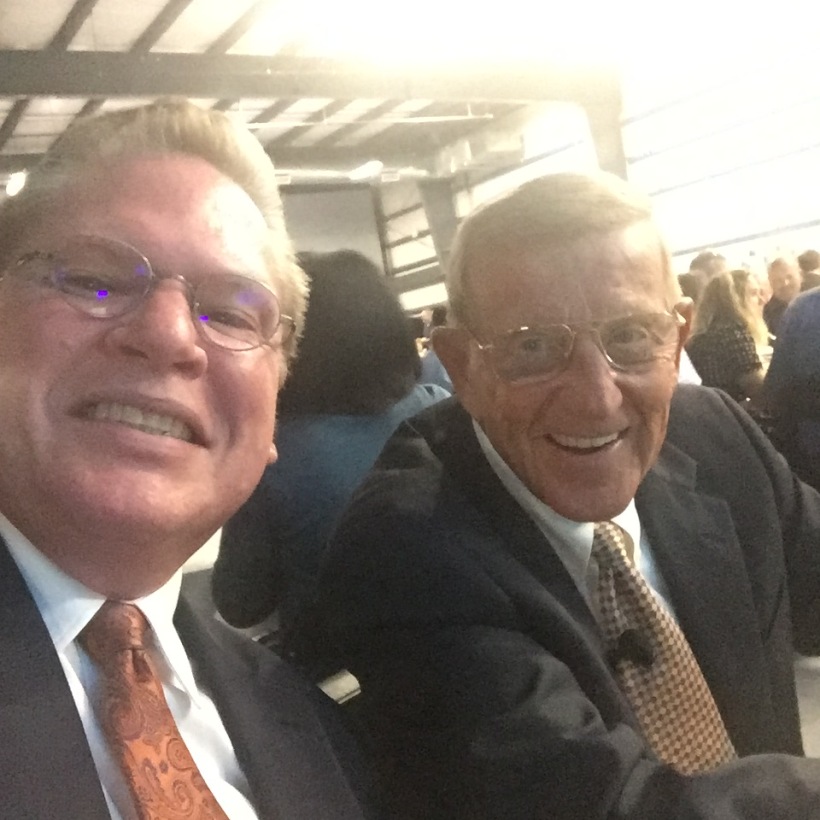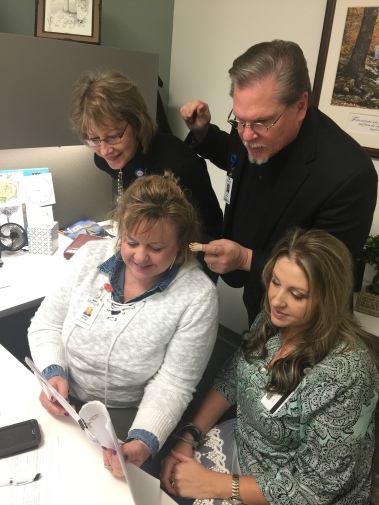“I thought that I would just finish medical school and go hang out my shingle and it would all work out, somehow.”

A disappointing testimony to my age is that references to the old TV drama, Marcus Welby, MD, have become irrelevant to our newest physician partners. This great previous iteration of doctor culture gives understanding to some of the expectations that were imagined by many physicians before they entered medical training. The dissonance between the realities of being a contracted partner in a medical group and the preconceived notion of autonomy in private practice can breed anxiety for physicians. In one thought the doctor is the nexus of the healing environment for a community of people and in the other they are part of a collaborative team that seeks healing as a group process.
In one caregiver session I recount the comment, “Don’t ask for me to give up my autonomy unless ‘you’ are excellent.” The inference was twofold – first in that the doctor was feeling a sense of loss and; secondly, the entity to which he was surrendering his own personal hope for excellent patient care was in some way NOT fully excellent. An unspoken plea is that the sponsoring community should step up its game. It is a bit like Tom Hanks’ dying comments to Pvt. Ryan, “Earn this.” Another associated insight is that there seems to be an unrelenting belief that they, the physician, are the only true point for discerning excellence and that excellence is exclusively defined by the quality of the patient care. This becomes a fulcrum for ethical concern going forward as we discern pathways for care into the future where resources become even more limited.
During conversations about “just culture” and how healthcare is trying to deliver more care to more people for less money, the physician who is concerned about loss of autonomy might interpret this strategy as “less money, less time, less quality care.” It is easy to see complex strategies that seem to rob time, money and the perceived negative effect on quality outcomes as being implemented on the backs of the physicians. Managing a sense of freedom is less about money and time and much more about “voice” and possibly more appreciative sway in decision making.
The physician partners relate a perception that they are losing control over some aspects of the care environment. This comes from comments describing loss of influence over finance, decision making, staffing, general facilities support, and so on. Inside most of the discussions referencing loss of autonomy a common theme of communication, or rather a breakdown in communication is prevalent.
One final observation on this topic is that concern of loss of autonomy remains largely undefined in its most universal sense in so much as there does not seem to be a working definition that everyone agrees upon for what loss of autonomy really means. For some it is loss of relationships, others see loss of control over their practice, decision making, contracts, income, or almost any number of individual aspirations on which expectations might have been shattered.
Several reasons can be misinterpreted into perceptions of why autonomy is strategically being limited in future models of care deliver: loss of ownership, control, capacity to influence, or even freedom. There is a much deeper implication that the word “autonomy” offers as a catalyst for empowering behavior that seems important to understanding a potential breakdown in culture. For instance, if we were to desire loyaltyas a key nature of the physician culture we seek to create, then it seems obvious that we might nurture an environment in which loyalty can be given. Loyalty to team, to leadership, to culture, to enterprise – whichever is the target of our hope would also become the object from which we convey want for loyalty. A key component of loyalty is that it can only come from the freedom to either give it, or withhold it. It is completely possible to feel loss of autonomy and be a compliant, passive participant. Any environment in which compliance is achieved yet does not include the protected, autonomous nature of the partner can only be interpreted as coercive in its nature.
It is impossible to give away something you do not possess.








 20 plus years ago, when my children were 5 and 7 we traveled to Walt Disney World. Breakfast with Mickey, the Electric Light Parade, the fireworks and the whole shebang – we did it all. But hands down, the most flawless moment of entertainment was the one that took me perfectly by surprise and probably cost Disney about $1.
20 plus years ago, when my children were 5 and 7 we traveled to Walt Disney World. Breakfast with Mickey, the Electric Light Parade, the fireworks and the whole shebang – we did it all. But hands down, the most flawless moment of entertainment was the one that took me perfectly by surprise and probably cost Disney about $1.